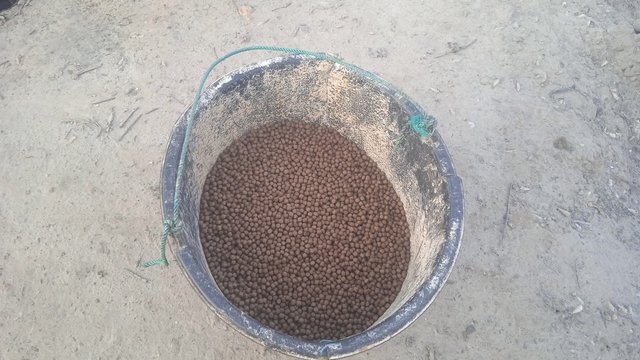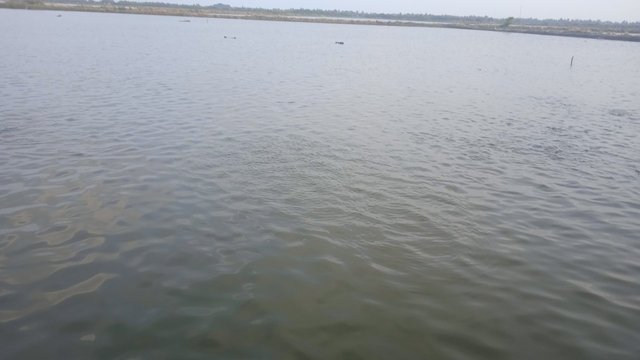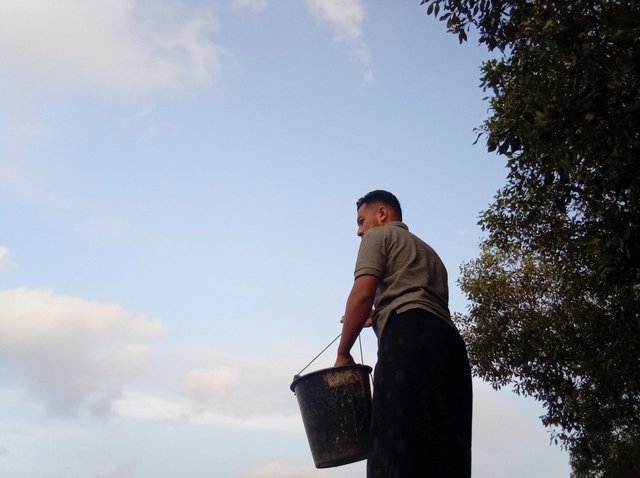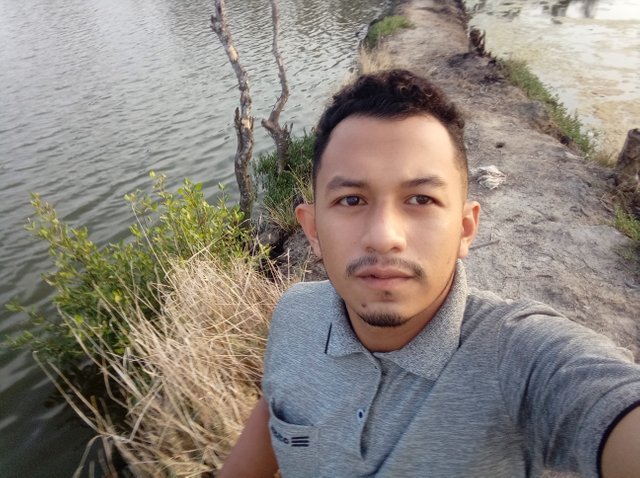Contest | Agricultural Story #1
Contest | Agricultural Story #1 https://steemit.com/hive-118902/@ruthjoe/contest-or-agricultural-story-1 I invite @assidiq @teukuraju @arifuddinn participate in this contest*
North Aceh Regency, Seunuddon District, Teupin Kuyeun Village, is close to sea waters with a coastline of ± 20 km, has sufficient potential resources to be cultivated and developed for fish farming activities (salt water/ponds, brackish water, cultivation in ponds). With a pond area of approximately 1,393 hectares, there is still a great opportunity to boost fish and shrimp aquaculture production.
In addition to the pond land factor used for fish, the role of the technology applied also affects the increase in pond cultivation production. In general, the level of pond cultivation technology is divided into three, namely extensive/traditional, semi-intensive, and intensive. The differences between these three cultivation technologies are seen from the stocking density, the seeds cultivated, the type of feed given, and the water wheel to add oxygen supply to the air.
Changes in the technology used require appropriate and large planning capital, because these technological changes cause the cost of pond cultivation production to increase. With this technological change, farmers can make their production factors more efficient, so that the goal of coastal development, namely improving the welfare of shrimp farmers, can be increased through increasing the productivity of shrimp farming businesses run by each person.
Unfortunately, milkfish cultivation that is developing in the Teupin Kuyuen community still uses extensive or traditional methods. Land area is always the mainstay. Meanwhile, the land area cannot be increased and tends to narrow as a result of housing, industrial development and so on, so that the benefits obtained from milkfish farming are minimal. This was conveyed by Mr. Muzakir Manaf, the current governor of Aceh, Seunuddin is the place where he was born. On the other hand, the bioeconomic approach shows that milkfish actually provides very promising and many benefits.
The Governor of Aceh, Muzakir Manaf wants to change the public's perception of the world of shrimp farming in Seunuddon, that technology can overcome the problem of decreasing pond land. Moreover, in 2024, which is now densely populated, with the direction of government policy to focus on people's economic development, poverty reduction, and poverty reduction in Aceh, especially in Seunuddon.
Through the Seunuddon District Marine and Fisheries Service, a pilot project for intensive milkfish cultivation was created. This pilot project targets 5 fish farming villages, namely: Teupin Kuyeun, Ulee Rubek, Alue Capli, Lhok Rambideng, and Mata Lada. The pilot project for milkfish cultivation is the implementation of activities designed as a model for the application of technology to demonstrate business effectiveness, economic scale, sustainability and impact on business scale development.




Raising milkfish can be done with several steps and preparations to ensure that the fish grow healthily and productively. Here are some tips from my father for raising milkfish because my parents are also milkfish farmers:
- Selection of a location close to a river with lots of water
Pond or Pond: Milkfish can be raised in ponds or seawater ponds that enter from the river. Make sure the pond location has a good drainage system to maintain water quality.
Pond Depth: the pond must be deep enough around 1.5 - 2 meters to allow the fish to swim freely without obstacles.
- Water Quality
- Milkfish grow well in water that is not too cloudy. Salinity Milkfish are more suitable in salt water. Check the salinity regularly and make adjustments if necessary.
Dissolved Oxygen**: Make sure the oxygen levels in the water are sufficient (minimum 5 mg/L). Use an aerator or air pump to increase oxygen levels if the pond is small, if it is large, it is safe for the air and also do not make it cramped for the fish to swim in
- Good Seed Distribution
- Healthy milkfish seeds should be around 10-15 cm in size.
- Seed distribution should be done with a density that is not too dense to prevent stress and disease in the fish. As a benchmark, per square meter of pond can be filled with 5-10 fish.
- Feeding
Type of Feed**: Milkfish are omnivores, which can be fed fish pellets, plankton, or other organic materials and also traditional feed that grows in addition such as moss in the water
-Feeding Frequency, provide feed 1-2 times a day in sufficient quantities, but not excessively so as not to pollute the water. Feed Quality*Make sure the feed has a balanced nutritional content, especially protein and fat for optimal growth.
- Care and Maintenance
Routine Health Checks check the condition of the fish to prevent disease attacks. If there are signs of infection or disease, take appropriate treatment.
-Penyari
Water: Ensure good water quality by routinely replacing some of the pond water approximately once a week - Harvest
-Milkfish are usually ready to be harvested after 4-6 months, depending on the size and maintenance conditions.
- Make sure the fish have reached their optimal size before harvesting, usually around 6-9 ounces per fish. With proper attention and care, milkfish can thrive and produce an abundant harvest.
share x Twitter
https://x.com/tgkwandijr99615/status/1871552159814459870?t=bcaBP3haf4sCvVcA_qDWCw&s=19
Curated by: sergeyk